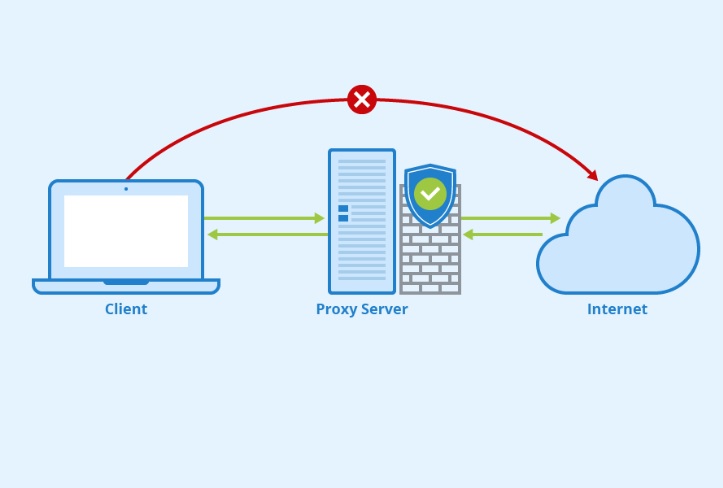Using the internet is full of risks, with a constant fear of attacks from ransomware or botnets. Most people switch to VPNs or proxies for the same reason. They both can help secure user identities and also mask your location and are quite similar in getting the job done. For the same reason, most people confuse between the two of them despite the two being different in most aspects.
What is a Proxy server?

A proxy server is like a gateway, that communicates the site you want to hit and your device. All the web requests get through the proxy servers before hitting the endpoints. When it comes to accessing the Geo-restricted content, a proxy server fits well in the shoes of anonymity. It provides a plethora of services, that includes security at the apex. Modern proxy servers not only fill security and privacy gaps, but also act as a cache server that reduces overall response time.
What is a Virtual private network?

VPN or Virtual Private Network is a tad bit similar to a proxy but the same. VPN does mask your identity and your location by rerouting you through another server, but also provides high-end security as it works on the operating system level irrespective of the direction of your traffic. The best thing about VPN is that it encrypts your data that flows through the network. This also helps you keep your work safe from the Internet Service Provider (or ISP) who are monitored and tracks all your work. Not only this, but you can also keep away from the eyes of the governmental agencies, website tracking, or hackers who might want to get in your path of work.
What are the differences between a VPN and a Proxy?
- VPNs encrypt the data that flows over the network while Proxies don’t. A VPN service can protect your work from Your ISP, attacks on the web, or government surveillances while Proxies can’t be trusted while handling sensitive information. Proxies are vulnerable to security attacks and there’s always a chance of your data being stolen.
- VPNs work at the network level and can reroute all the traffic on the network while with proxies being on the application level, they only reroute the traffic of a specific app or browser.
- As VPNs are involved in encryption of data, it takes a lot of time as compared to proxies. But you can always enhance connection and browsing speeds. While when you are using a proxy to mask your activity, there can be possible performance possible issues. This can even occur while using the same for downloads and more, here VPN a better option.
- For a good VPN, you need to pay a good amount, that will provide full protection to your data over the network, however many proxy servers are available for free.
- In terms of a strong connection, you can always be more reliable on VPNs that Proxies as with proxies, the connections drop.
A VPN and Proxy are similar in terms of rerouting data as they both do the same, although at different levels. Although, VPN and Proxy can log our data such as IP, DNS requests, and other such details. But it can be said that the same price VPN can provide you better security than a proxy in all ways. If you are wondering which one you should use, here is something you can go through. Privacy and security matters are of great concern, be it your work data or personal data. The top VPNs today also provide an option for logless policy, that is, any of your browsing data will not be logged at all. Both options can be used as per their advantage. When you are working on the network, you can use a proxy server to route the traffic. That helps protect the organization from attacks and has a record of web content. But, when you are off the network, you need to use a VPN to keep your work content safe and maintain your resources safely. Neither a proxy server, nor a VPN will guard you against all kinds of cyber threats to your system. Your personal data can still be exposed or there can be a ransomware attack at worst cases. However, a VPN can outsmart a proxy server by providing you more security and privacy, and you can go ahead safely with all your work.

